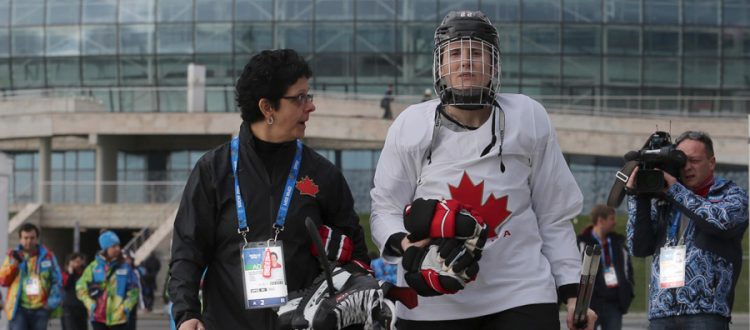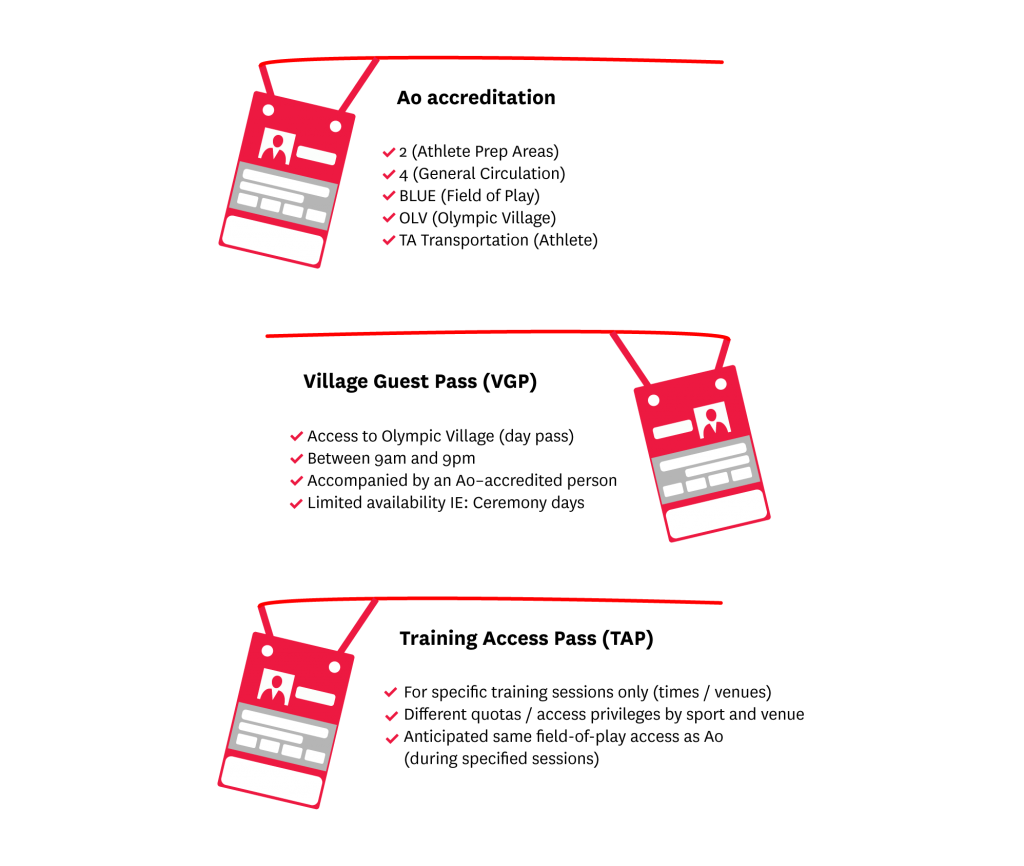5 ways to make your process help performance
If you are reading this, you obviously know how to get stuff done. Nobody reaches this point in their Olympic journey without understanding how to take care of the little things which make a big difference. With that in mind, we don’t have to tell you that nailing your accreditation process is one of those things. And it’s no secret this can sometimes be a challenge.
The good news is that (like always) we are here to help. Here are five ways to ensure your accreditation process will have a positive impact on Team Canada’s performance:
1. UNDERSTAND YOU ARE CONTRIBUTING TO THE SUCCESS OF A LARGER TEAM
Your accred type (or lack thereof) has a higher purpose. In fact, because you have earned the right to go through this process, the status of your accreditation (and that of your potential teammates) fits into the overall shared goal of Team Canada. Like a puzzle. Each has an impact on every sport and functional area of our team — all organized with optimal performance in mind. Your accreditation type is a key contribution to this.
Here’s how it breaks down …
The 'Ao' accred type:
‘Ao’ accreds are for Team Officials, or in other words, people whose roles are essential to the performance of the athlete on the field of play, and for those who require access to the Olympic Village for the overall administration of the team. They are quite limited.
Everyone has different needs:
It seems obvious, but when looking at every single sport and their specific performance needs, these differences add up. It’s our job at the COC to prioritize these needs when allocating our limited number of Aos. Priorities are based on the athlete team size of each National Sport Organization, medal potential, health and science requirements, and additional considerations identified as critical to performance.
Olympic restrictions are tight:
Unlike the World Cup circuit or World Championship events, the Olympic Games put a tighter leash on accreditation allocations. Personal coaches and support team members often feel it the most. This is a potential distraction to an athlete accustomed to having additional coaches and support staff around them in training. For this reason, it is critical we are strategic in identifying roles which can only be performed with an Ao, so the number of accreditations allocated to sports is maximized.
'Ao' Transferables are a great solution:
As a way to get the most from our limited number of Ao accreditations, we are permitted to transfer up to half of them — across all sports and the entire COC Mission Team. It’s a great solution, because we can take advantage of the competition schedule where our sports do not overlap. However, it can be tough during the middle portion of the Games where accreditations are particularly limited due to maximum per-day restrictions. The allocation of accreditations is fair but not equal. The reality is that some sports and COC Mission Team members will benefit from the realities of the competition schedule more than others, so it’s never as easy as comparing apples to apples between sports or other countries. That said, and because we are experts in planning for what we can’t control, accreditation availability is based on what will help us accomplish our shared Team goal — together.
2. KNOW THAT IT WON’T BE PERFECT
Some things in life are certain: The sun will come up in morning and there will be Olympic accreditation challenges. But, again, since you are an expert in overcoming challenges outside of your control, we’ve highlighted some specific realities that will inform your planning.
Demand for Olympic accred far exceeds what we are permitted to supply. If it were up to us, everyone would receive the accred they request. Sadly, it’s not. The number of accreditations available is dictated by the IOC, and is calculated based entirely on the number of athletes we send to the Games.
As a result, we do not know the final number of accreditations available to us until the end of the qualification period (for PyeongChang 2018, this is January 25th, 2018). So, we have to estimate where to allocate accreditations. These estimates can and often do change, right up to the Delegation Registration Meeting (DRM) which is held just about two weeks before the Opening Ceremony.
3. USE YOUR STATUS AS AN ADVANTAGE
The Games are full of variables, but there’s one thing you can count on: Your accreditation status will impact your Games experience. Therefore, it must influence your plan. Here is an outline to help you better understand what kind of access certain credentials allow for:
4. ASK THE RIGHT QUESTIONS
Do you know today exactly what your accred status is for Games? If the answer is no, you should be planning to have a conversation with your team leader in the very near future. It’s important to note that slight adjustments onsite are sometimes possible. However, in general, accreditation allocations are determined in advance and can’t be changed, so don’t go into Games thinking you can change it onsite.
Here are some questions to help guide that conversation so you can understand what your accreditation or non-accreditation will mean for your Games experience:
• What days am I accredited (will there be a period at Games when I am non-accredited)?
• What form of ground transportation will I/my coach/MPC/physio have access to?
• What days will I require a Village Guest Pass?
• Will I be moving from the Performance Centre into the Village and when?
• Will I have access to training venues?
• How much time should I plan for travel to venue/receipt of training access pass?
• Do I need tickets for competition?
• Will I be accredited/eligible to march in the Opening and/or Closing Ceremony?
5. BE CONFIDENT IN THE SOLUTION
As mentioned, we are all experts in controlling the things we can control and planning for the things we cannot. The accreditation process is no different.
Since the COC does everything in its power to optimize the composition of our Team, and you are a key contributor to our shared goal at the Games, we know our collective solutions will work. By understanding how the accreditation process fits together, you can amplify the positive impact you will have on the Team’s performance — and move on to the next ‘little thing’ that will make a ‘big difference’.

